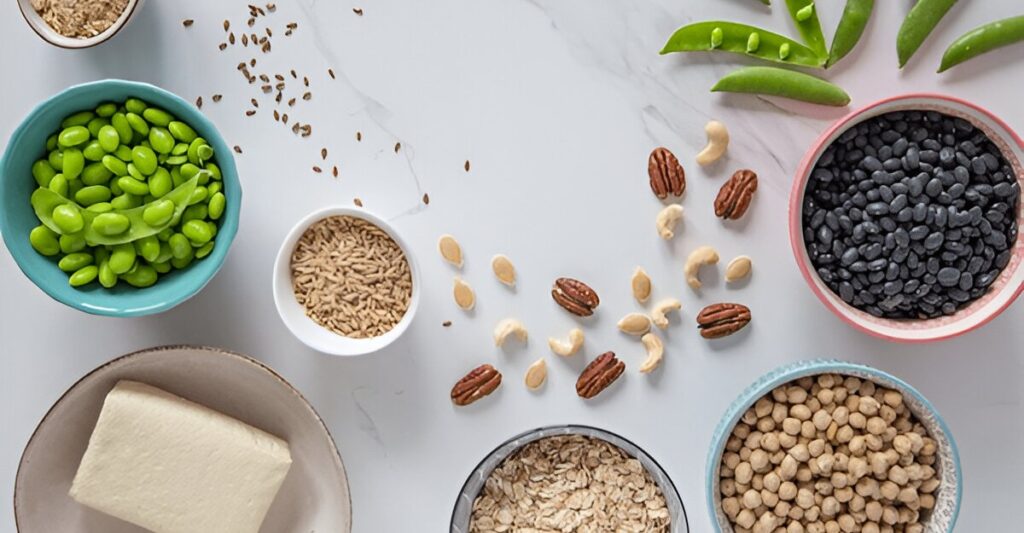Endurance athletes, whether runners, cyclists, triathletes, or swimmers, push their bodies to the limit. To sustain long training sessions, perform at peak levels, and recover effectively, proper nutrition is non-negotiable. Nutrition for endurance athletes is about more than just eating enough—it’s about choosing the right foods at the right times to fuel performance and support long-term health. This guide breaks down the essentials of endurance nutrition, offering practical strategies to help you thrive in your sport.
Why Nutrition Matters for Endurance Athletes
Endurance activities demand significant energy, primarily from carbohydrates and fats, with protein playing a key role in recovery. A well-planned diet ensures your body has the fuel to endure long workouts, maintain stamina, and repair muscles afterward. Poor nutrition, on the other hand, can lead to fatigue, reduced performance, and increased risk of injury.
Research shows that tailored nutrition for endurance athletes can improve endurance capacity by up to 20% and speed up recovery, allowing for consistent training. Let’s explore the core components of an endurance-focused diet.
Key Nutrients for Endurance Athletes
To optimize performance, endurance athletes need a balanced intake of macronutrients and micronutrients. Here’s what to prioritize:
1. Carbohydrates: Your Primary Fuel Source
Carbohydrates are the body’s preferred energy source during high-intensity and prolonged exercise. They’re stored as glycogen in muscles and the liver, but these stores deplete quickly during endurance activities.
- How much? Aim for 5-7 grams of carbs per kilogram of body weight daily for moderate training, increasing to 8-12 grams during heavy training periods.
- Best sources: Whole grains (oats, quinoa, brown rice), fruits (bananas, berries), starchy vegetables (sweet potatoes), and sports gels for during workouts.
- Timing: Eat carb-rich meals 2-3 hours before training and replenish with carbs within 30 minutes post-workout to restore glycogen.
2. Protein: For Muscle Repair and Recovery
Protein supports muscle repair, reduces soreness, and maintains lean muscle mass. While endurance athletes rely less on protein for energy, it’s critical for recovery.
- How much? Target 1.2-2.0 grams of protein per kilogram of body weight daily, depending on training intensity.
- Best sources: Lean meats (chicken, turkey), fish (salmon, tuna), eggs, Greek yogurt, tofu, and plant-based protein powders.
- Timing: Spread protein intake evenly across meals and include 20-30 grams in a post-workout snack or meal.
3. Fats: For Sustained Energy
Healthy fats provide a secondary energy source during long, low-intensity sessions and support overall health.
- How much? Fats should make up 20-35% of total calories, with a focus on unsaturated fats.
- Best sources: Avocados, nuts, seeds, olive oil, and fatty fish.
- Timing: Include fats in meals away from training to avoid digestive slowdown during exercise.
4. Micronutrients: The Unsung Heroes
Vitamins and minerals like iron, calcium, and electrolytes (sodium, potassium, magnesium) are vital for energy production, muscle function, and hydration.
- Iron: Prevents fatigue and supports oxygen delivery. Found in spinach, red meat, and lentils.
- Calcium: Strengthens bones, especially for high-impact sports like running. Get it from dairy, fortified plant milk, or leafy greens.
- Electrolytes: Replenish losses from sweat. Use sports drinks, bananas, or salted snacks during long sessions.
Hydration: The Foundation of Performance
Proper hydration is a cornerstone of nutrition for endurance athletes. Dehydration can impair performance, increase heart rate, and delay recovery. Aim to:
- Drink regularly: Consume 500-1000 ml of water per hour during exercise, adjusting for sweat rate and climate.
- Use electrolytes: For sessions longer than 60 minutes, include electrolyte-enhanced drinks to replace sodium and potassium.
- Monitor hydration: Check urine color (pale yellow is ideal) and weigh yourself before and after workouts to gauge fluid loss.
Timing Your Nutrition: Pre, During, and Post-Workout
When you eat is just as important as what you eat. Here’s how to time your nutrition for endurance athletes:
Pre-Workout (2-3 Hours Before)
Eat a carb-heavy, low-fat meal to top off glycogen stores. Examples:
- Oatmeal with fruit and a drizzle of honey.
- A turkey sandwich on whole-grain bread with veggies.
- Rice with grilled chicken and steamed broccoli.
For a quick snack 30-60 minutes before, try a banana or an energy bar.
During Workout
For sessions longer than 90 minutes, consume 30-60 grams of carbs per hour to maintain energy. Options include:
- Sports drinks or gels.
- Dried fruit or honey packets.
- Energy chews.
Post-Workout (Within 30-60 Minutes)
Prioritize carbs and protein to replenish glycogen and repair muscles. Try:
- A smoothie with Greek yogurt, berries, and oats.
- Grilled salmon with quinoa and roasted vegetables.
- A protein shake with a bagel.
Sample Meal Plan for Endurance Athletes
Here’s a one-day meal plan tailored to nutrition for endurance athletes (based on a 70 kg athlete):
- Breakfast: Greek yogurt with granola, mixed berries, and a banana (50g carbs, 20g protein).
- Snack: Whole-grain toast with almond butter and sliced apple (30g carbs, 5g protein).
- Lunch: Grilled chicken wrap with quinoa, spinach, avocado, and sweet potato fries (60g carbs, 30g protein, 15g fat).
- Pre-Workout Snack: Energy bar and a sports drink (40g carbs).
- During Workout: 1-2 energy gels (30-60g carbs).
- Post-Workout: Protein shake with milk and a bagel with cream cheese (50g carbs, 25g protein).
- Dinner: Baked salmon, brown rice, roasted asparagus, and a side salad with olive oil dressing (60g carbs, 30g protein, 20g fat).
- Evening Snack: Cottage cheese with pineapple (15g carbs, 10g protein).
Adjust portions based on your body weight, training intensity, and goals.
Supplements: Do You Need Them?
While whole foods should form the basis of nutrition for endurance athletes, supplements can be useful in certain cases:
- Electrolyte tablets: Convenient for long, sweaty sessions.
- Protein powders: Handy for quick post-workout recovery.
- Caffeine: Enhances focus and endurance in small doses (1-3 mg/kg body weight).
- Omega-3s: Support recovery and reduce inflammation.
Consult a dietitian before adding supplements to ensure they align with your needs.
Common Mistakes to Avoid
To maximize the benefits of nutrition for endurance athletes, steer clear of these pitfalls:
- Underfueling: Skimping on calories can lead to fatigue and burnout. Track intake to ensure you’re meeting energy demands.
- Over-relying on processed foods: Sports gels are great during workouts but shouldn’t replace whole foods in daily meals.
- Ignoring recovery: Skipping post-workout nutrition delays glycogen replenishment and muscle repair.
- Neglecting variety: A diverse diet ensures you get all essential nutrients.
Long-Term Strategies for Success
Sustainability is key to maintaining nutrition for endurance athletes. Adopt these habits:
- Plan ahead: Prep meals and snacks to avoid last-minute unhealthy choices.
- Listen to your body: Adjust intake based on hunger, energy levels, and training demands.
- Work with a professional: A sports dietitian can personalize your plan for optimal results.
- Experiment: Test different foods and timing during training to find what works best for race day.
Conclusion: Fueling Your Endurance Journey
Nutrition for endurance athletes is a powerful tool to unlock your potential. By prioritizing carbohydrates, protein, fats, and hydration, and timing your meals strategically, you can enhance performance, recover faster, and stay strong through grueling training cycles. Start small—try a new pre-workout snack or add a recovery shake—and build from there. With the right nutrition, you’ll not only conquer your next race but also sustain a healthy, active lifestyle for years to come.
Take the first step today: plan your next training meal and fuel your body for success.


